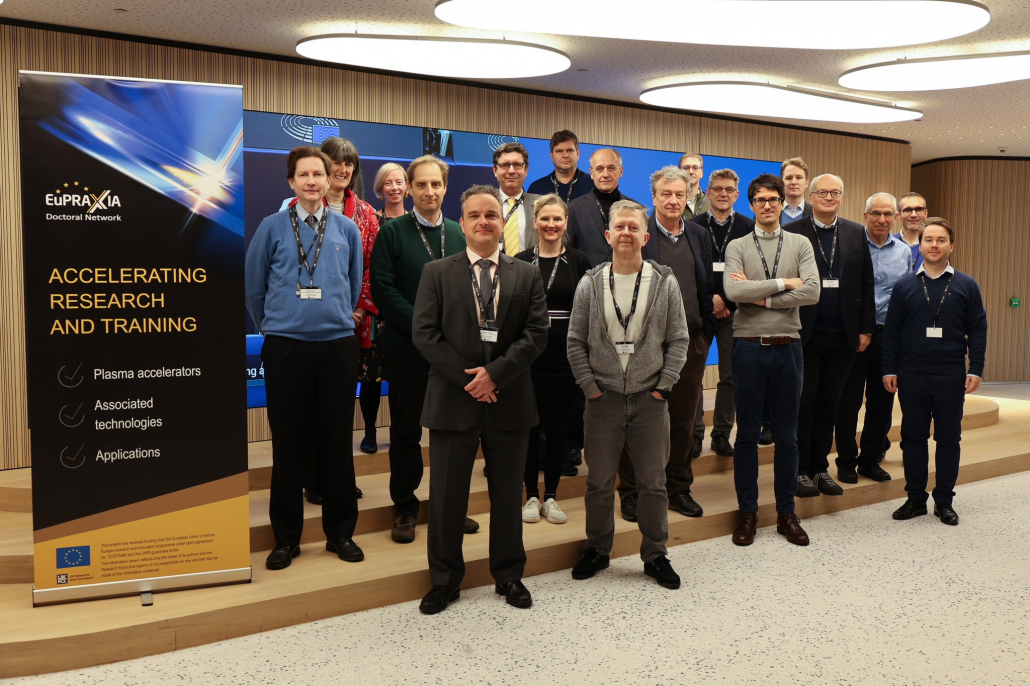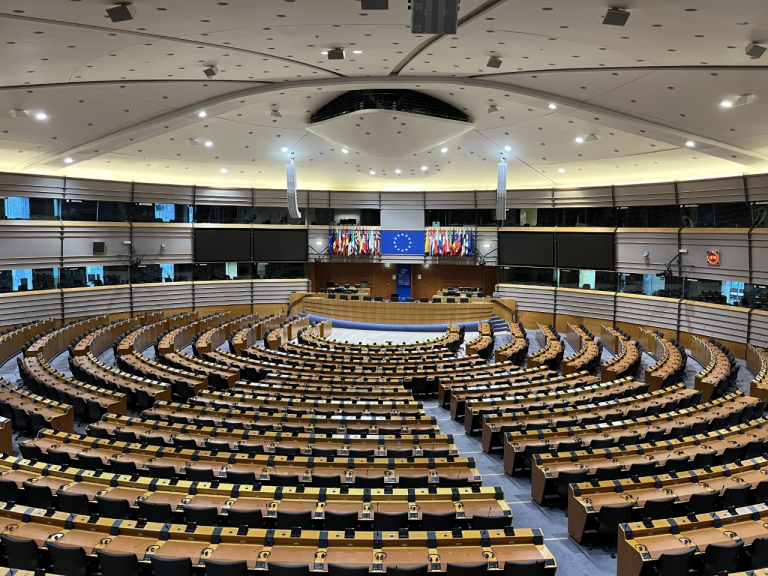EuPRAXIA Doctoral Network starts in Brussels
The new 3.2M€ Marie Skłodowska-Curie Actions Doctoral Network EuPRAXIA-DN started with a kick-off meeting on 16/17 January 2023 in Brussels that brought together all the partners involved in the project for the first time.
The EuPRAXIA Doctoral Network will support the wider EuPRAXIA project, which aims to construct an innovative electron accelerator using laser- and electron-beam-driven plasma wakefield acceleration.
EuPRAXIA-DN will offer twelve high-level Fellowships between universities, research centers, and industry that will carry out an interdisciplinary and cross-sector plasma accelerator research and training program.
The meeting was hosted by Professor Carsten P. Welsch, who coordinates the network from the Italian National Institute for Nuclear Physics INFN in Frascati, at the premises of KoWi, the European Liaison Office of the German Research Organizations in Brussels.
On the first day, Professor Welsch and members of the University of Liverpool’s Project T.E.A.M. explained the managerial aspects of the network, while the coordinator of the EuPRAXIA Preparatory Phase project, Dr. Ralph Assmann, gave an overview of the future EuPRAXIA facility. Speakers from KoWi and the UK Research Office provided further context and guidance on efficient project implementation.
The participants in the meeting were treated with a guided visit to the European Parliament which underlined the European spirit of the project and the importance of international collaboration.
In the afternoon of the first day, representatives from each of the eight beneficiary partners gave an introduction to their respective institutions, outlining the specific research and training program designed for the Ph.D. student that they will be hosting.
The Fellow working at Instrumentation Technologies will work on the development and validation of an X-band Low Level Radio Frequency prototype for EuPRAXIA. The current X-band LLRF prototypes, based on frequency conversion extensions from S-band, do not provide the necessary temperature stability nor the ability to control such short RF pulses. For this reason, a new LLRF system tailored to the needs of X-band machines is to be developed. The three-year project will involve the fellow in the high-level definition of the prototype architecture, the selection of the proper components and the validation of its performance, both in the laboratory and in the test-bench at INFN in Frascati.
Fifteen associate partners also had the opportunity to detail their contributions to the network on the second day. They will offer secondments to the network’s Fellows and make essential contributions to the wider training.
Presentations on supervision and mentoring and strategic communication concluded an informative and very successful event. Professor Welsch said: “It was great to meet all of the project partners for the first time in person. We have very ambitious plans that will push the boundaries of plasma accelerator research over the next few years and will provide comprehensive training to our Fellows that will provide them with the skills set needed to succeed in the research and careers. We all look forward to now starting our collaborative research.”
EuPRAXIA-DN will focus on boosting the career prospects of its Fellows in one of the most exciting scientific and technical innovations of our time. The network is currently welcoming applications for its positions with a first application deadline on 31 January 2023.
More information about the project and how to apply can be found at http://www.eupraxia-dn.org.

